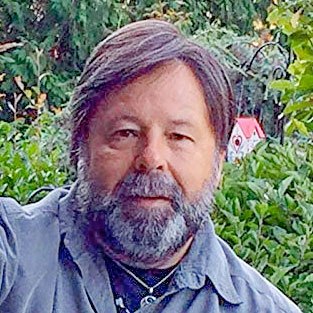Sadly, I investigated numerous rape and other sexual assault calls during my career. While detectives will handle the follow up investigation, patrol officers are normally the first on the scene and will call for any necessary medical assistance, conduct a preliminary investigation and evidence collection, assure crime scene preservation (if that’s possible), write an incident report, and a statement. Oh, and if we have time, show off our shooting skills (see below).
I bring this up because, adding to the current leftist pile-on regarding anything police related, Keith Ellison, the Minnesota attorney general, added his two cents (which is about double what it’s worth). According to The Federalist, Attorney General Ellison recently said, “If you’re a woman who’s been a victim of a sexual assault, and the assailant ran away, wouldn’t you rather talk to somebody who is trained in helping you deal with what you’re dealing with, as opposed to somebody whose main training is that they know how to use a firearm? Right?”
How condescending and ignorant —not to mention incalculably stupid— is that comment? AG Ellison makes so many errors here, I’m not sure where to start. He stereotypes cops as knuckle-dragging, pistol-shooting troglodytes who couldn’t possibly be sensitive enough to handle a rape investigation. He never even considers investigating sexual assault is something police officers (patrol and detectives) have been doing successfully for—well, forever.
As I mentioned above, patrol officers respond to all manner of crime scenes, including sexual assaults, and we’re all trained to do so. And most of us do (or did, for us retired folks) it very well. Don’t cops have wives, mothers, sisters, aunts, and female friends? Add to that, a department’s Special Assault Unit (or similar designation) detectives are cops specifically assigned to handle sexual assault cases. They have even more extensive training and know very well how to talk to rape victims. So they can get the information necessary to catch, charge, and imprison the monster. Can AG Ellison’s alternative to the police do that?
AG Ellison also belittles female sexual assault victims by, as with the cops, stereotyping them. From my experience, while there are similarities, diverse victims react differently. Victims likely experience each of the common emotions to a certain degree: shock, denial, fear, anger, sadness, and even a misplaced guilt (erroneously asking “How did I let that happen?”) from the encounter. Often, for each victim, one specific emotion will surface.
A victim may express an uncontrollable fear that the suspect will return imminently. Others are profoundly despondent and sob uncontrollably. Others express an explosive rage. While others will not say a word. They will just silently stare off into the distance as if saying goodbye to their sense of wellbeing vanishes over some far horizon.
Incidentally, in the above-mentioned article in The Federalist, Evita Duffy references an unconscionable lie told in an article published in The Guardian by leftist feminist Moria Donegan. Her conclusion: “As feminists, we must recognize that the police are more likely to hurt women than to help us.” What a steaming pile of canine excrement that is (actually, that comparison might be an insult to canine excrement).
There was one sexual assault that has stayed with me all these years, one that AG Ellison could learn from. It was common in female sexual assault calls, if the responding officers were male, that we would try to get a female officer to respond with us. Generally, the thought is, female rape victims are more comfortable with a female officer than a male. That is usually true, but not always, as we learned.
On this call, we met one of those victims for whom fear was the primary emotion. She shuddered at every odd noise, her eyes darting every which way, asking if he (the suspect) had come back. We had three officers at the scene, a female and two males. I and the other male officer deferred to our female colleague. Surprisingly, the victim asked her if a “man” (male officer) could speak with her instead. The victim said she felt safer with a “man close by.”
Though she had been viciously attacked by a man, regardless of stereotypes and presumptions about female rape victims, apparently, she still knew there was a difference between a good man —a protector, a cop— and a bad man —a predator, a savage criminal.
Right, wrong, or not politically correct (from a feminist perspective), that is how that particular young woman felt. I didn’t know anything about her background that might explain her preference, I just knew she needed our help, and we helped her in the way she preferred.
Strictly speaking, assuming a female victim should speak with a female officer is also sexist, right? Human beings are complicated.
Sorry, AG Ellison, you, just like so many of your Democratic-socialist kin who like to divide people into neat little packages, are simply wrong on this issue. But what else is new?
Oh, one more thing about sending someone other than cops to a reported rape. Sometimes the rapist returns while the investigation is underway, and the victim is still at the scene. I’ve seen it. It would be kind of nice to have cops around if that happened, wouldn’t it, Mr. Attorney General?

Join the Discussion
COMMENTS POLICY: We have no tolerance for messages of violence, racism, vulgarity, obscenity or other such discourteous behavior. Thank you for contributing to a respectful and useful online dialogue.